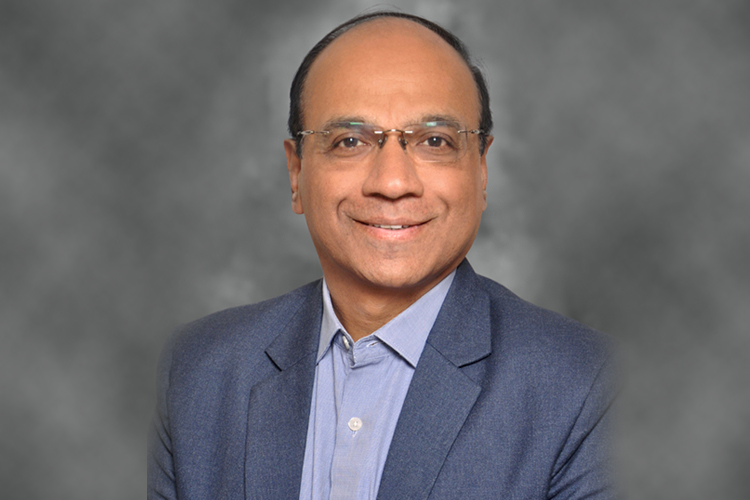

FM veteran Suhas Inamdar speaks to REM TIMES about the rapid progress of the sector in India and the world
September 21, 2023 | Deepa Natarajan Lobo | India | Facilities Management

With over 35 years of experience in the industrial and facilities management (FM) sector of India, Western Africa and the UAE, corporate trainer and consultant Suhas Inamdar trains working professionals on the different aspects of FM, sustainability and general management. Over the last 15 years, he has held impressive positions in firms like Wasl Properties and Imdaad in Dubai and JLL India.
Currently based in India, Inamdar spoke to REM Times on the growth, trends and future of the FM sector in India and the world.
Q1. What are the reasons for the rapid growth of the FM sector in India?
The digital revolution of the 90s has triggered unprecedented urbanisation in the country, with a growing number of people moving to cities in search of better opportunities. This has led to a surge in the construction of residential, commercial, and industrial properties. Moreover, several government initiatives like Smart Cities and the development of industrial corridors have led to increased investment in infrastructure projects. FM is crucial to maintain and operate these private properties and public assets efficiently.
As Indian businesses expand globally, they are increasingly adopting international standards and practices, including FM. They are benchmarking themselves against global standards. Many multinational companies entering India prefer to outsource their FM services to specialised firms. Companies in India too are recognizing that outsourcing FM can lead to cost savings and that specialised service providers can deliver these services more efficiently than in-house teams.
Q2. What are the latest trends in the sector?
The industry is evolving continuously with experts constantly identifying and adopting new technologies which enable them to achieve higher process efficiencies coupled with significant cost savings. While IoT has helped in the substantial reduction of utility costs, with even soft services like housekeeping and security being performed at lesser costs with higher efficiency; smart buildings use the power of AI and Data Analytics to optimize operations, enhance occupant comfort and reduce energy consumption. AI-powered chatbots and virtual assistants are being increasingly used for improved communication with occupants for quicker issue resolution. Digital twin technology creates virtual replicas of physical facilities, allowing for real-time monitoring, testing, and optimization.
Strategies are becoming increasingly flexible for hybrid work models and facilities managers are developing comprehensive resilience plans to address various risks, including natural disasters, cybersecurity threats, and supply chain disruptions.
Q3. Terms like ‘carbon neutrality’ and ‘net zero’ are a buzzword these days with summits like G20 and the upcoming COP28 focusing largely on them. How important is it for nations to tackle the carbon crisis?
Tackling the carbon crisis is of paramount importance for nations due to its profound impact on the environment, human health, economies, and global stability. Carbon emissions, primarily in the form of carbon dioxide (CO2) and other greenhouse gases, are the leading drivers of climate change, which poses significant threats, including rising temperatures, sea-level rise, extreme weather events, and disruptions to ecosystems.
The most effective way to address this issue is to accelerate the transition from fossil fuels to renewable energy sources. This includes investing in clean energy infrastructure and incentivizing renewable energy adoption. Simultaneously, there needs to be concerted efforts to improve energy efficiency in buildings, industries, and the transportation sector. Implementing energy-efficient technologies and practices can significantly reduce carbon emissions.
Addressing the carbon crisis requires collective actions from governments, businesses, communities, and individuals. Summits like G20 and COP28 play a vital role in this regard.
Q4. How crucial is technology to the growth of the sector?
Today, technology’s importance cannot be overstated. AI and ML will significantly boost the power of IoT in attaining super-efficient operations. Big data will provide valuable insights into the various equipment and systems which help in making wiser decisions related to operation and maintenance of the facility. Together, these technologies will transform the way maintenance is performed from ‘preventive to predictive’ resulting in substantial cost savings.
VR and AR offer great assistance to technicians in ‘seeing’ the invisible parameters such as current and temperature, and also visualising small intricate components hidden in big machines. It is also used for training maintenance staff and technicians, offering immersive experiences for learning complex systems and equipment.
There are also specific technological tools for asset tracking, space utilisation, security and surveillance, energy management, and work order management etc. As the industry continues to evolve, embracing technological advancements will be crucial for FM companies to thrive and meet the evolving needs of their clients.
Q5. What is the future of the FM in India and across the world?
The future holds significant promise. Sustainability will remain a top priority with specific focus on green building certifications, renewable energy integration, and sustainable waste management practices to meet environmental goals.
The integration of IoT, AI, and data analytics will continue to grow, enabling predictive maintenance, energy optimization, and real-time monitoring of facilities. Digital twins, VR, and AR will become more common for facility modelling, training, and maintenance purposes.
In India, the rapid infrastructure development and growing number of Smart Cities will drive substantial growth in the FM sector. Globally, the future of FM is closely tied to sustainability, technology, and adaptability to changing work environments. Successful FM providers will be those that embrace innovation, prioritise sustainability, and excel in delivering efficient, safe, and user-friendly facilities.